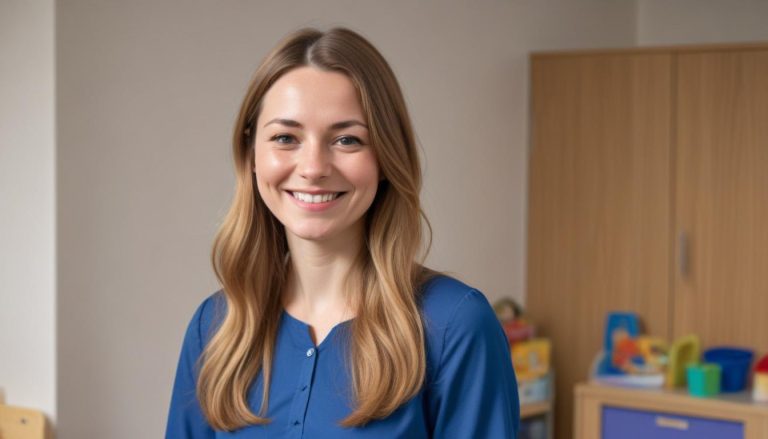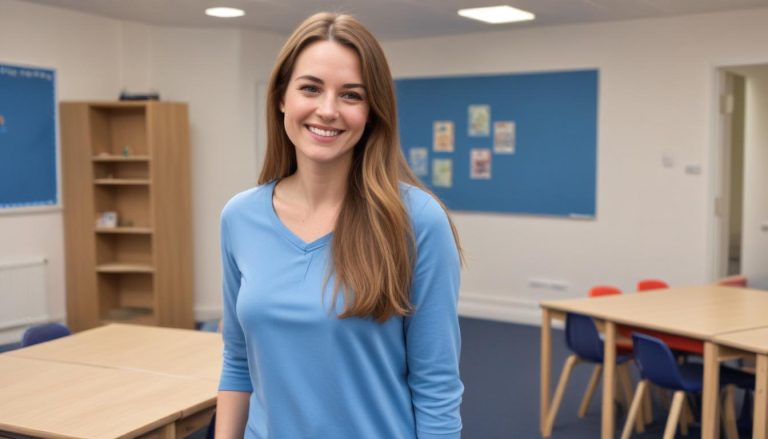
This guide will help you answer 5.2 Describe appropriate support services for babies and children.
Babies and young children face many challenges throughout their growth and development. Support services exist to promote their well-being and meet their needs. These services help address physical, emotional, social, educational, and medical aspects of a child’s life. Professionals working in childcare settings must know about these support services to guide families effectively and ensure children access the assistance they need. In this guide, we cover some of the support services for babies and children.
Health Services
Health services play a significant role in ensuring children’s physical and mental health. These services provide preventive care, diagnose illnesses, and offer treatment to babies, children, and families. Examples include:
- Health Visitors: Health visitors are trained nurses specialising in child development. They support families from pregnancy until the child reaches five years of age. They provide advice on feeding, sleep routines, immunisations, and managing common illnesses.
- GPs (General Practitioners): A GP is often the first point of contact for families with health concerns. They provide medical advice, prescribe medication, and refer children to specialists if further assessment is needed.
- Paediatricians: Paediatricians are doctors who specialise in treating children’s illnesses. They focus on medical issues specific to babies and children, offering expert input when conditions are more serious.
- Child Psychologists: These professionals support children with mental health concerns, behavioural problems, or emotional difficulties. They help children manage anxiety, depression, trauma, or developmental delays through therapies and counselling.
- Speech and Language Therapists (SLTs): SLTs help children with communication difficulties. They provide strategies for improving speech clarity, understanding language, and building social interaction skills.
Educational Support Services
Educational support services help children to access learning opportunities. These services ensure individual needs are met, especially if a child has specific learning difficulties or disabilities. Examples include:
- Special Educational Needs Coordinators (SENCOs): Every early years setting and school must have a SENCO. They identify children with special educational needs (SEN), develop support plans, and coordinate interventions.
- Educational Psychologists: These experts assess children’s learning and behavioural needs. They provide strategies for teachers and parents to help children overcome challenges in education.
- Portage Services: Portage is home-based support for children with additional needs aged 0-5. It involves tailored educational activities to promote development in motor skills, communication, and social interaction.
- Specialist Teachers: These professionals work with children who have specific challenges such as hearing impairments, visual impairments, or severe learning difficulties. They develop learning methods tailored to the child’s individual needs.
Family Support Services
Family support services aim to strengthen families who may be struggling financially, emotionally, or socially. They help parents develop skills to provide a safe and nurturing environment for their children. Examples include:
- Children’s Centres: These centres offer a variety of services to families with children under five. Examples include parenting classes, playgroups, health advice, and employment support.
- Support Workers: Family support workers provide direct help in areas like improving parenting skills, budgeting, or managing household routines. They also connect families with further support if required.
- Domestic Abuse Services: Organisations like Women’s Aid and Refuge offer help to families experiencing domestic violence. They provide safe shelter, counselling, and legal advice.
- Food Banks: Food banks support low-income families by providing essential groceries. They often work closely with other agencies to address wider issues such as poverty or homelessness.
Safeguarding and Protection Services
Safeguarding services protect babies and children from neglect, abuse, or harm. These services intervene when a child’s safety and welfare are at risk. Examples include:
- Social Services: Social workers assess situations where children may be at risk. They create a safeguarding plan to ensure the child is safe and their needs are met. This may involve supporting families or arranging alternative care.
- NSPCC (National Society for the Prevention of Cruelty to Children): The NSPCC works to prevent child abuse and protect vulnerable children. It provides a helpline for adults to report concerns and supports children through services like counselling.
- Police: In cases of immediate danger, police may be involved to intervene and protect a child. They work alongside social services and other agencies to handle criminal investigations and ensure safety.
- Local Safeguarding Partnerships: These partnerships involve professionals from health, education, social care, and law enforcement working together to safeguard children.
Specialist Support Services
Some children require specialist services for unique needs related to disabilities or long-term conditions. These services ensure they receive appropriate care in all areas of life. Examples include:
- Physiotherapists: Physiotherapists help children with physical mobility challenges or developmental delays. They provide exercises and routines to improve movement, strength, and flexibility.
- Occupational Therapists: These therapists support children to develop the skills needed for daily activities. For instance, they help children learn to dress themselves, use tools like cutlery, or improve hand-eye coordination.
- CAMHS (Child and Adolescent Mental Health Services): These NHS services support children with mental health concerns. They help address issues such as eating disorders, self-harm, or severe anxiety.
- Audiologists: Audiologists specialise in diagnosing and managing hearing problems in children. They help with fitting hearing aids or providing other tools to improve auditory skills.
Voluntary and Community Services
Voluntary organisations and community groups provide vital support to families and children. They cater to different needs and are often easier to access than statutory services. Examples include:
- Home-Start: This charity supports families with children under five. Volunteers visit families at home to provide practical help, emotional support, and advice.
- Barnardo’s: Barnardo’s works with vulnerable children and families. Their services include fostering, adoption support, and helping young carers.
- Sure Start Programmes: Sure Start offers community-based programmes for young children. Activities include parent-and-child sessions, childcare support, and health workshops.
- Parenting Charities: Organisations like Family Lives provide confidential helplines and online resources to support parents dealing with everyday challenges.
Emergency Services
In crisis situations, emergency services assist families and children to address immediate concerns. Examples include:
- Emergency Medical Services: If a baby or child falls seriously ill or suffers an injury, paramedics provide emergency care.
- Childline: Childline is a free 24-hour helpline where children can talk about their worries confidentially. Trained counsellors offer advice and support on any issue.
- Homelessness Services: Organisations such as Shelter help families facing homelessness. They provide emergency accommodation and guidance to secure safe housing.
How to Access Support Services
Professionals in childcare settings play a key role in linking families to the right services. Here’s how support can be accessed:
- Making Referrals: If you notice a child or family needs help, make a referral to the relevant service. For example, if a child displays developmental delays, contact your local health visitor or speech and language therapist.
- Providing Information: Share details of local organisations and charities offering free or low-cost support. Some families may not know these options exist.
- Seeking Permission: Always obtain permission from the parent or guardian before contacting non-emergency services, except in cases where a child is at immediate risk of harm.
- Collaboration: Work closely with other professionals. Joint efforts between healthcare, education, and social services lead to better outcomes for children.
- Using Assessments: For children with additional needs, the Early Help Assessment forms or Education, Health and Care Plans (EHCPs) outline support services to meet specific requirements.
Role of Early Years Practitioners
As an early years practitioner, you must recognise when children or families require external help. Be observant of their behaviour, development, and social interactions. Listen carefully to any concerns raised by parents or carers. Maintain confidentiality and sensitivity while sharing information with other professionals. By connecting children and their families with the right support services, you play a part in improving their overall well-being and future opportunities.
Subscribe to Newsletter
Get the latest news and updates from Care Learning and be first to know about our free courses when they launch.






